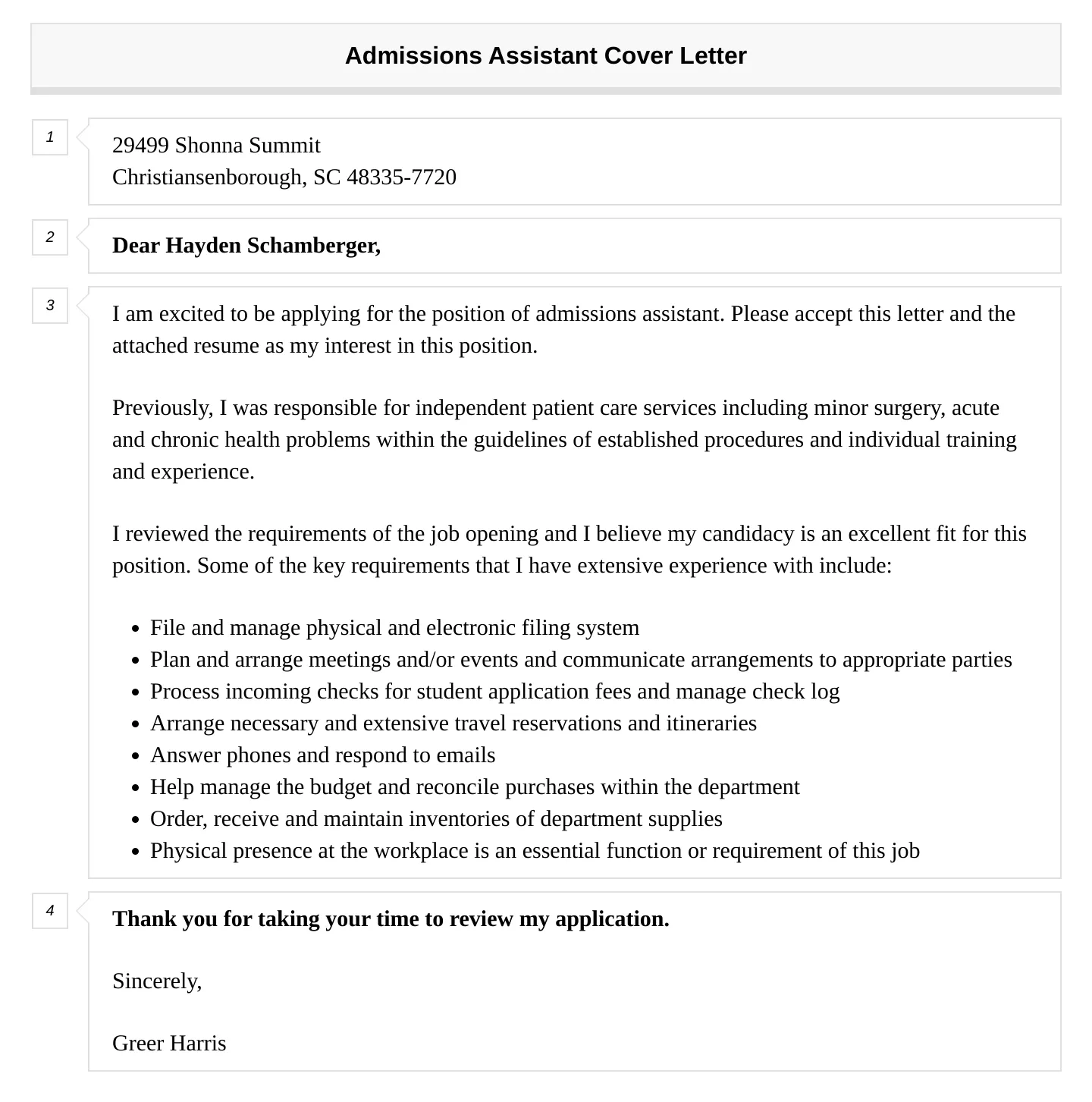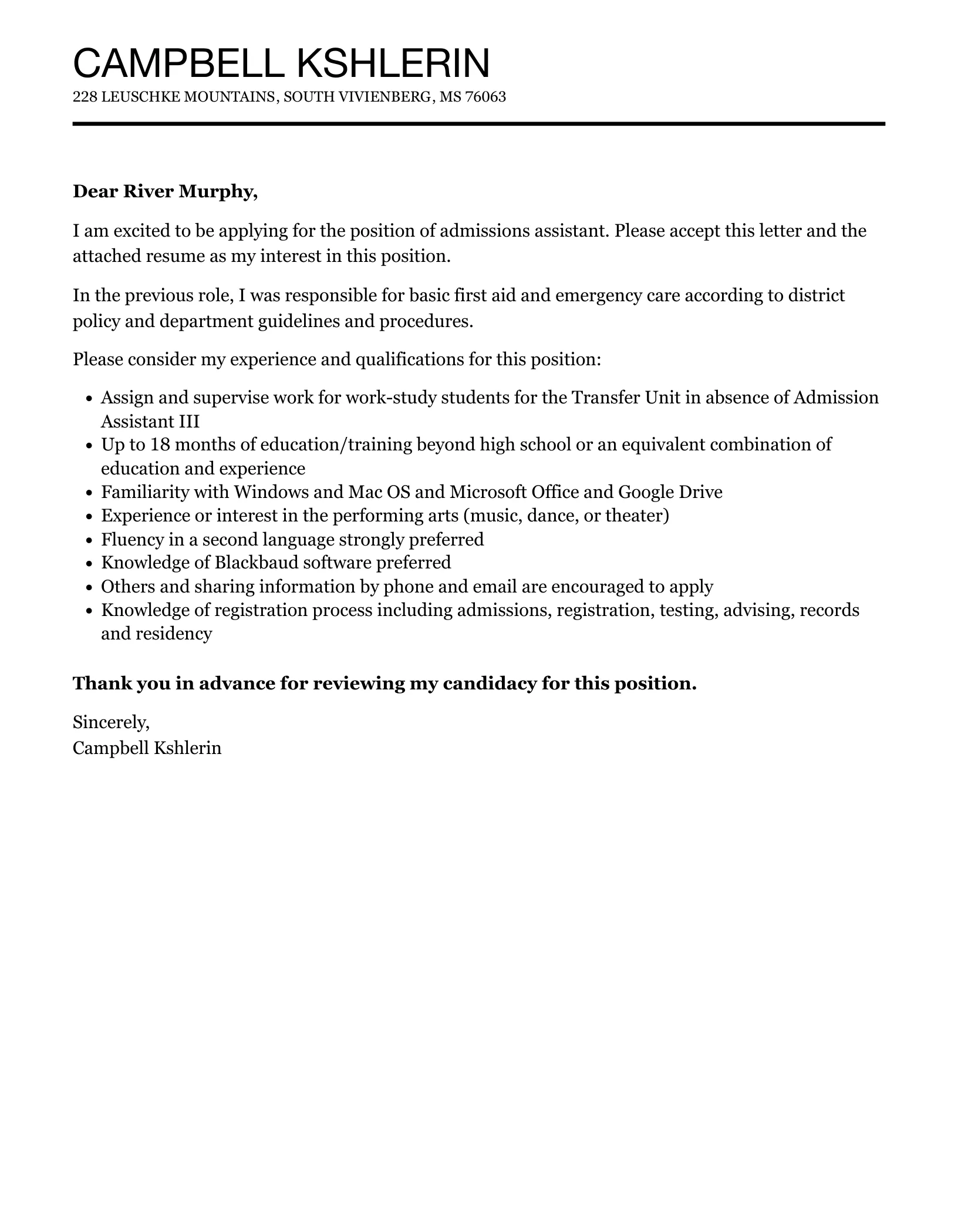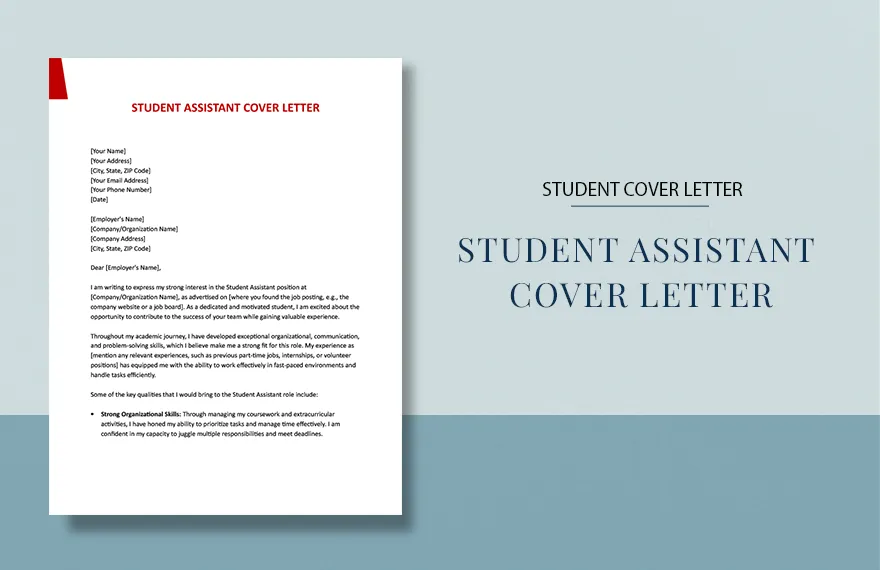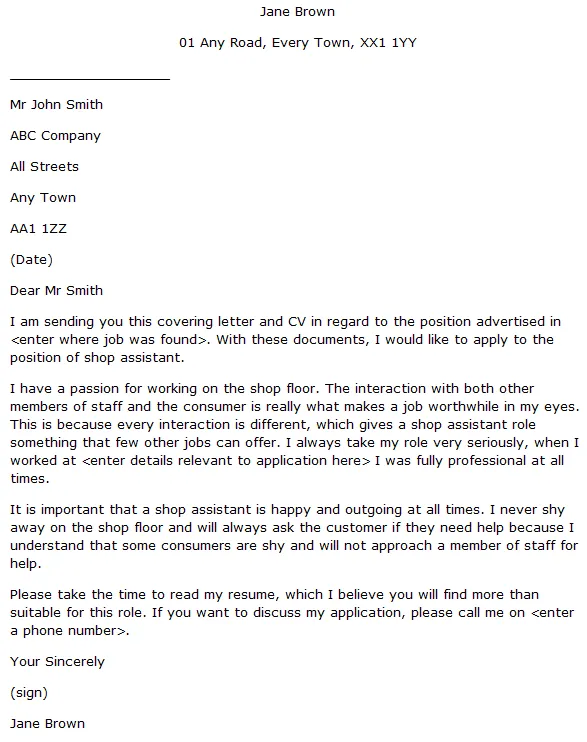Cover Letter Secrets for Admissions Assistants
A cover letter is your first impression. It’s your chance to shine, showcase your qualifications, and convince the hiring manager that you’re the perfect fit for the Admissions Assistant role. But crafting a compelling cover letter can feel daunting. This guide provides top secrets and actionable tips to help you create a cover letter that will make you stand out from the competition and land you your dream job. By following these guidelines and putting in the effort, you will be well on your way to securing an interview and ultimately, the position. Remember, your cover letter is a reflection of your professionalism and attention to detail – qualities that are highly valued in the world of admissions.
Highlight Your Skills and Experience
Begin by clearly stating the specific skills and experience that align with the job description. Admissions Assistant roles often require strong organizational skills, attention to detail, excellent communication abilities (both written and verbal), and the ability to handle multiple tasks simultaneously. If the job description emphasizes specific software proficiency, such as experience with CRM systems or database management, make sure to include these in your cover letter. Consider the core responsibilities, which may involve processing applications, managing student records, communicating with prospective students and parents, and assisting with campus events. It is essential to tailor your cover letter to each specific job application, highlighting the experiences and skills that are most relevant and demonstrating a clear understanding of the institution’s needs. Providing specific examples of how you have successfully used these skills in past roles will add more impact.
Quantify Your Achievements

Don’t just tell the reader what you did. Show them the impact you made. Instead of stating ‘Managed student applications,’ try ‘Managed over 1,000 student applications, ensuring a 98% accuracy rate in data entry.’ Use numbers and metrics to demonstrate your accomplishments and make your cover letter more persuasive. For instance, if you improved efficiency in a previous role, quantify it by stating the percentage increase or the amount of time saved. If you resolved a significant number of inquiries or complaints, provide the exact figures to validate your impact. This approach not only enhances credibility but also offers a more compelling picture of your capabilities. Always provide concise and clear examples to showcase your contributions, and emphasize the positive outcomes achieved through your actions. This strategy will significantly elevate your cover letter.
Demonstrate Passion for Education
Demonstrating a genuine interest in education and the institution will make your cover letter far more compelling. Share why you are passionate about working in the field of education. Mention any personal experiences, volunteer work, or academic pursuits that have fueled your interest in supporting student success. If you have a strong understanding of the institution’s mission, values, or specific programs, highlight that as well. This shows that you’ve done your research and are genuinely interested in being a part of their team. Also, expressing a commitment to helping students achieve their educational goals will resonate with the hiring manager and will make your cover letter stand out. Consider including anecdotes or personal reflections to add authenticity and warmth to your message, making it more memorable.
Showcase Your Communication Skills
Admissions Assistants must be excellent communicators. This includes written, verbal, and interpersonal communication. In your cover letter, demonstrate your written communication skills by using proper grammar, clear language, and a professional tone. Highlight any experience you have in corresponding with students, parents, or faculty. If you’ve made presentations, written newsletters, or have experience in customer service or conflict resolution, be sure to include those. Showing that you are adept at conveying information clearly and concisely and that you can adapt your communication style to different audiences is key. Moreover, emphasize your ability to listen actively, and respond empathetically, these skills will make you an ideal candidate for any admissions-related position. Showing that you are a capable communicator will make your cover letter more engaging and persuasive.
Tailor Your Letter to the Role

A generic cover letter is easily recognized and often discarded. To make your application stand out, customize your cover letter for each role. Read the job description carefully and use keywords, then emphasize the skills and experiences that align with the requirements. Demonstrate that you’ve researched the specific institution and understand its mission and values. By customizing your cover letter, you show that you are genuinely interested in the role and have taken the time to understand the specific requirements of the position. Generic cover letters lack the necessary personalization. Moreover, tailor your letter by emphasizing the experiences and skills mentioned in the job description to show the hiring manager how well you meet their needs. This will greatly increase your chances of landing an interview.
Research the Institution
Before submitting your cover letter, take the time to research the institution. Understand their mission, values, and programs. Visit their website, read their mission statement, and review their social media profiles. This knowledge will help you tailor your cover letter and show your genuine interest in the institution. Mentioning specific programs or initiatives that resonate with you can set you apart from other candidates. Highlighting your knowledge of the institution demonstrates that you are proactive, well-prepared, and committed to the role, and it signals to the employer that you are not simply applying for any job, but are genuinely interested in their institution. Tailor your letter by emphasizing how your skills align with their goals and how you can contribute to their success.
Address Specific Requirements
Carefully review the job description and address each of the requirements listed. If the job description specifically asks for experience with a particular software or skill, make sure to highlight it in your cover letter. The hiring manager will be looking for candidates who meet their needs. Ensure that your cover letter directly addresses the requirements outlined in the job description. This targeted approach not only makes your application more relevant but also shows your ability to follow instructions and pay attention to detail, which are essential qualities for an Admissions Assistant. Make a list of all the requirements mentioned in the job posting, and then show where you meet them. This will assure that your cover letter effectively conveys your qualifications. This approach will significantly increase your chances of getting noticed by the hiring manager.
Emphasize Relevant Experience

Focus on the experience that is most relevant to the Admissions Assistant role. This may include administrative experience, customer service skills, data entry, or any experience with communication. If you have any previous experience in education or with student-related activities, make sure to highlight that. Provide specific examples of your accomplishments and how you have used your skills in previous roles. If you have held roles in related areas, such as customer service, data analysis, or event planning, be sure to include these in your cover letter, as they often involve transferable skills that are highly valued in admissions departments. This strategy helps the reader quickly identify your core competencies and makes it easy for them to see your value.
Proofread Carefully
Errors in your cover letter can undermine your credibility. Always proofread your cover letter multiple times for any spelling, grammar, or punctuation errors. Consider having a friend, family member, or career counselor review it as well. Ensure that all your contact information is up-to-date and accurate. Errors in your cover letter will make a negative impression on the hiring manager. This may be one of the most crucial steps of the process, as it shows your attention to detail, your professionalism, and your respect for the institution. Proofreading demonstrates your commitment to quality and attention to detail. Always double-check your cover letter before submitting it, as errors can undermine your credibility and make a negative impression on the hiring manager.
